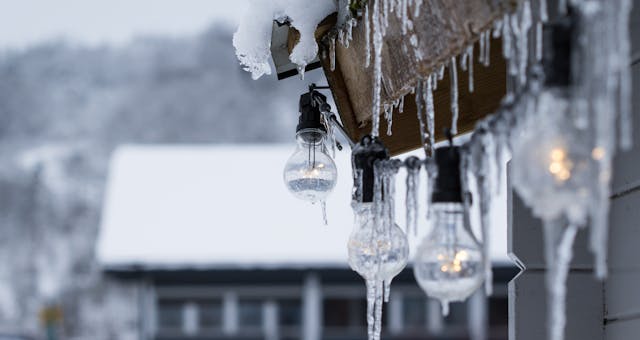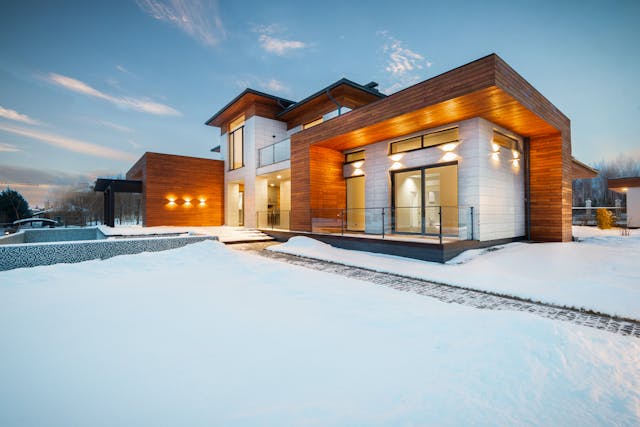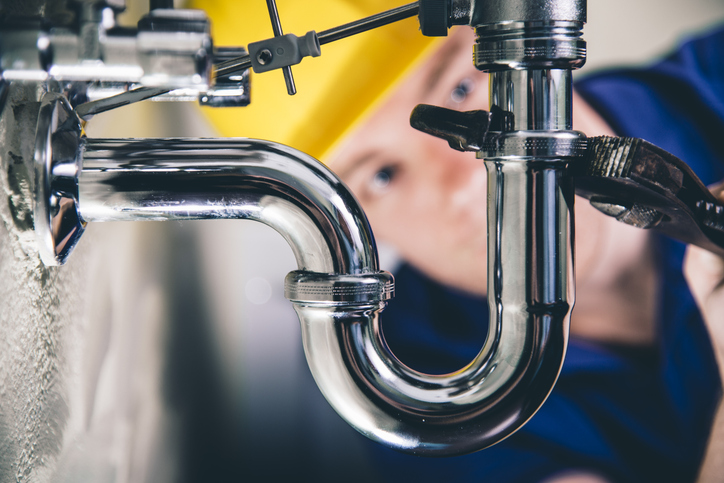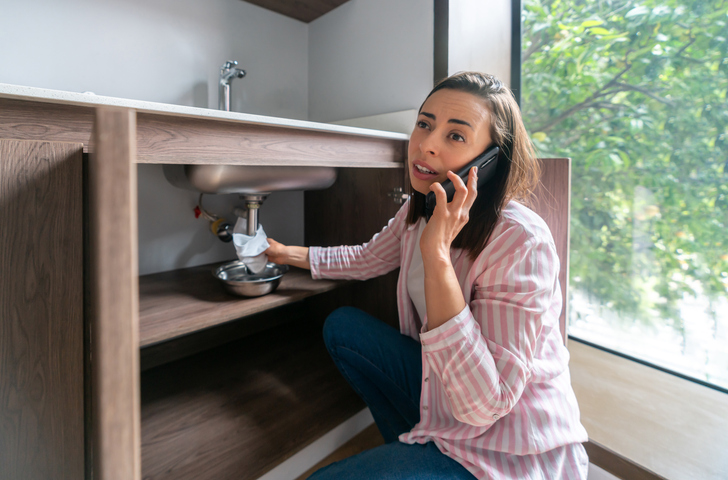As winter approaches in Delta, BC, homeowners are preparing for the colder months ahead. While many focus on preparing their homes for the usual weather conditions — chilly mornings, wet days, and maybe even a sprinkling of snow — one critical element often goes overlooked: protecting your pipes. With unpredictable weather patterns becoming the norm, safeguarding your home’s plumbing system is more important than ever. This year, the necessity to protect your pipes is not just a precaution; it’s a vital part of winter home maintenance.
In Delta, where temperatures rarely dip below freezing, it’s easy to think that pipe protection isn’t necessary. However, even the occasional cold snap can cause significant damage to plumbing systems. By taking proactive steps to prevent frozen pipes, leaks, and bursts, you can avoid costly repairs and ensure your plumbing remains functional throughout the winter. This blog will explore the importance of protecting your pipes, why it’s especially critical in Delta and the surrounding areas this year, and provide you with practical steps to safeguard your home.

Why Protecting Your Pipes is Essential
When the temperature falls, water in unprotected pipes can freeze, expand, and cause those pipes to crack or burst. This can lead to serious water damage inside your home, and the repair costs for burst pipes can be astronomical. Here’s why protecting your pipes during winter is essential:
1. Frozen Pipes Can Lead to Costly Damage
A frozen pipe may seem like a minor inconvenience, but it can cause major damage if left unchecked. Water expands as it freezes, putting immense pressure on your pipes. This pressure can cause even the strongest materials to crack or burst. When a pipe bursts, water can flood the surrounding areas, leading to structural damage, mold growth, and ruined personal belongings. The cost of repairing the plumbing, the water damage, and the cleanup process can quickly add up, and insurance may not cover everything if the damage is deemed preventable.
For more about the high costs of water damage, check out these statistics from Insurance Bureau of Canada.
2. Water Supply Disruption
In the event of a frozen or burst pipe, your water supply can be interrupted. Depending on the location and severity of the issue, you may be without running water for days or even longer. If the damage is extensive, it could take weeks to fully restore water to your home, disrupting daily activities and forcing you to seek alternative solutions for basic needs such as cooking, cleaning, and hygiene. Ensuring that your pipes are protected will help you avoid this inconvenience.

3. Protecting Your Investment
Your home is likely one of your most significant investments. If the plumbing system is compromised, the integrity of your property can be jeopardized. Protecting your pipes not only preserves the function of your home but also its value. If you’re planning to sell in the future, the condition of your plumbing system will be a major factor in the buyer’s decision-making process. Regular maintenance and protection against cold weather will keep your home’s plumbing system in optimal condition.
4. Avoid the Hassle of Emergency Repairs
Emergencies rarely occur at convenient times, and the last thing any homeowner wants is to face a plumbing emergency in the dead of winter. If you haven’t properly protecting your pipes during the winter cold, you may be forced to deal with burst pipes, water damage, and the stress of calling in a plumber during the busiest time of the year. Avoid the rush and the panic by taking preventive measures ahead of time. Protecting your pipes now can prevent the need for emergency repairs later.
Why It’s Especially Critical in Delta, BC This Year
Delta, BC, is known for its mild coastal climate, but the region is not immune to the extreme winter weather that can sometimes hit the Lower Mainland. With the rise in unpredictable weather patterns due to climate change, it’s crucial to protect your pipes this year more than ever. While Delta’s temperatures rarely dip below freezing, cold snaps are not uncommon, and when they do occur, they can be intense enough to cause damage to unprotected plumbing systems.
In addition, Delta and its surrounding areas are seeing more erratic weather, with cold snaps followed by heavy rain or snow. These fluctuations create the perfect conditions for frozen pipes. The unpredictability of the weather highlights the need for homeowners to be extra cautious in preparing their pipes for winter.
1. Increased Likelihood of Temperature Fluctuations
Delta’s winter weather can be unpredictable. In some years, temperatures may hover just above freezing, only to dip into sub-zero territory overnight. These sudden fluctuations can cause condensation to freeze in pipes, particularly those located in attics, basements, and exterior walls. While these conditions may not be extreme enough to freeze pipes in one go, they can create vulnerabilities that lead to problems later on. Protecting your pipes ensures that any temporary cold spells won’t have a lasting impact.
2. Heavy Rain and Snow Can Exacerbate Problems
While Delta’s winters are often wet rather than snowy, that doesn’t mean it won’t snow occasionally. When snow falls on already frozen ground, or when rain seeps into pipes, the water can increase the pressure on pipes, making it more likely for them to freeze. Protecting your pipes during the winter ensures that they can withstand the added moisture, keeping your plumbing intact. Without proper insulation, pipes can burst under the strain of freezing rain or heavy snowmelt.
3. Changes in Municipal Water Supply
In Delta, temperatures below freezing can affect municipal water supply lines, especially in areas with older infrastructure. If water treatment facilities or municipal pipelines are affected by freezing temperatures, local water pressure can fluctuate or become unreliable. For homeowners with older pipes or those in neighborhoods with older infrastructure, this can increase the risk of pipe bursts or leaks. By investing in preventive measures, you can mitigate the risks posed by these external factors.

How to Protect Your Pipes in Delta and the Surrounding Area
There are several steps you can take to protect your pipes from freezing and bursting during the winter. Here are some practical tips:
1. Insulate Your Pipes
Insulation is one of the most effective ways to protect your pipes. Use foam pipe insulation or heat tape to cover pipes that are vulnerable to freezing, especially those in unheated areas like attics, crawl spaces, and garages. This simple step helps keep the temperature of the water inside the pipes above freezing, reducing the risk of damage.
For more details on pipe insulation, you can visit this insulation guide.
2. Seal Gaps and Cracks
Cold air can easily enter your home through gaps and cracks in walls, windows, and doors, increasing the chances of frozen pipes. Inspect areas where pipes run along exterior walls or through uninsulated spaces. Seal any gaps you find with caulking or weather stripping. This will help maintain a consistent temperature in your home and prevent cold air from coming into contact with your plumbing.
3. Keep Your Home Warm
One of the easiest ways to prevent frozen pipes is to keep your home warm during the winter. Set your thermostat to at least 12-15°C (54-59°F) even when you’re away from home. If you go on vacation, have a friend or neighbor monitor the temperature to ensure it doesn’t dip too low. Avoid turning off the heat completely, as this can lead to rapid cooling of pipes and increase the risk of freezing.
For expert advice on keeping your home warm and energy-efficient this winter, check out this winter home heating guide.
4. Let Faucets Drip
When temperatures plummet, let a faucet in your home drip slightly. This allows water to move through the pipes, preventing the water inside from freezing. It’s especially useful for pipes located in unheated areas. While this won’t guarantee that your pipes won’t freeze, it significantly reduces the risk.
5. Know Where Your Shutoff Valves Are
In the event of a frozen or burst pipe, the first thing you should do is turn off the water supply. Know where your main shutoff valve is located and make sure it’s easily accessible. If you don’t already have a shutoff valve for individual pipes, consider installing one to give you more control over your water system in case of an emergency.
6. Install Pipe Heating Cables
For pipes that are in especially vulnerable locations, such as along exterior walls or in unheated crawl spaces, consider installing electric heating cables. These cables gently warm pipes to prevent freezing, even during prolonged cold spells.

7. Consult a Professional Plumber
If you’re unsure about the condition of your pipes or need assistance with protection, it’s always a good idea to consult a professional plumber. We can assess your plumbing system and recommend the best solutions for your home. Professional installation of pipe insulation, heating cables, and other protective measures can help ensure your home is fully prepared for the winter.
For a local Delta plumber who can help with winterizing your plumbing system, you should call Clint or fill out our information form and we will reach out to you as soon as possible.
Winter in Delta, BC, may not always involve extreme cold, but with unpredictable weather patterns becoming more common, protecting your pipes is more important than ever. Frozen pipes can lead to costly damage, water supply disruption, and major headaches for homeowners. This year, it’s crucial to take proactive steps to safeguard your plumbing system, from insulating vulnerable pipes to sealing cracks and maintaining consistent indoor temperatures. By taking the time to protect your pipes, you can rest easy knowing that your home is ready for whatever winter throws its way. Don’t wait until the damage is done — act now and protect your pipes
